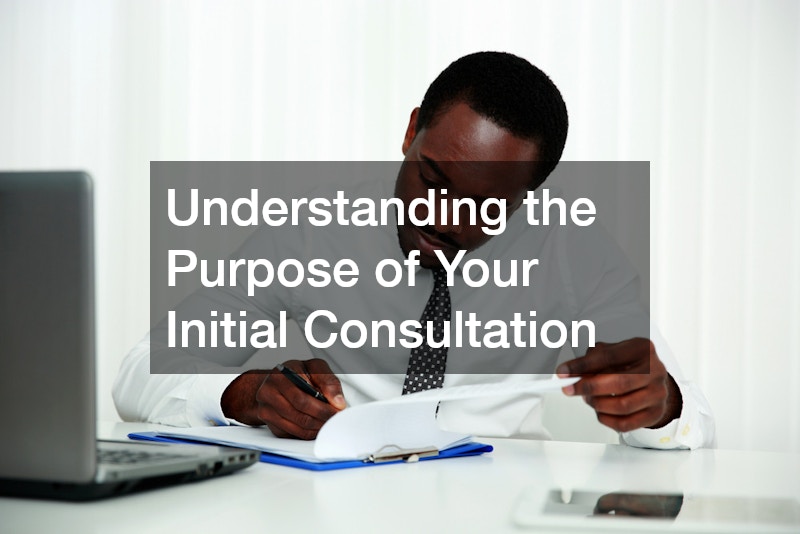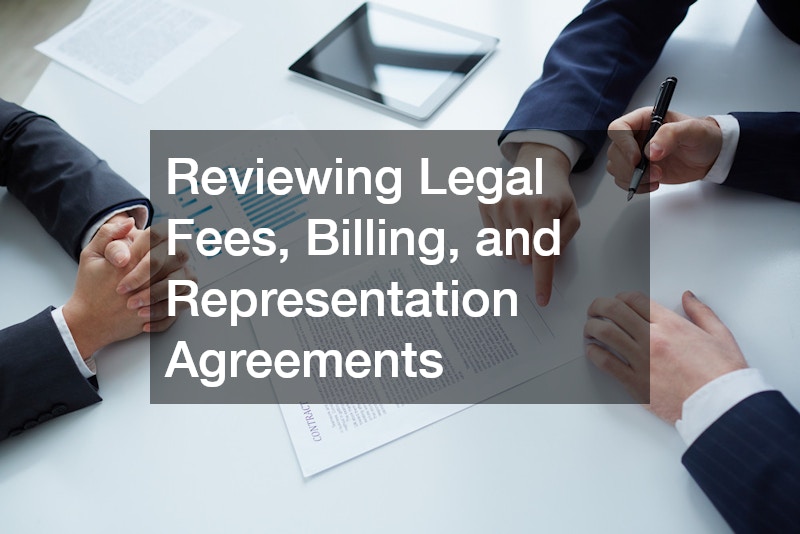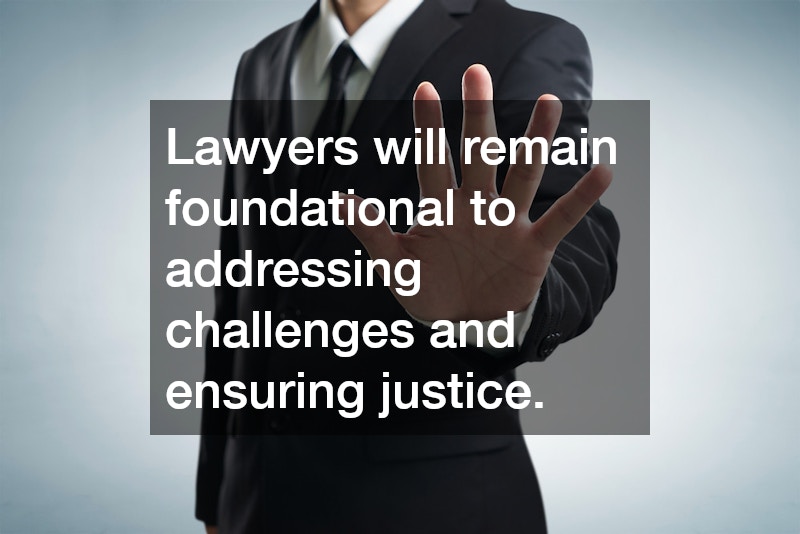
Meeting with a lawyer for the first time can feel intimidating, especially if you’re unsure of what to expect or how to prepare. Whether you’re dealing with a personal matter, planning for the future, or facing a serious legal issue, your initial consultation is a critical step in building a strong foundation for your case. This first meeting is your opportunity to understand your rights, discuss your concerns, and determine whether the attorney is the right fit for your needs. It’s also a chance for your lawyer to evaluate your situation and outline potential strategies. By coming prepared and knowing what the process entails, you can make the most of your time together and start your legal journey with confidence.
Understanding the Purpose of Your Initial Consultation
The first meeting with a lawyer serves as an introduction to both the legal process and the professional relationship you’re about to form. During this consultation, the attorney’s main goal is to learn about your situation, listen to your concerns, and identify the key legal issues involved. It’s also your opportunity to ask questions about the lawyer’s experience, areas of focus, and approach to handling cases like yours. This early conversation helps you determine whether the attorney’s style and communication align with your expectations. By the end of the meeting, both you and your lawyer should have a clearer sense of what working together might look like moving forward.
For example, when meeting with a divorce lawyer, your discussion may focus on sensitive matters such as property division, custody arrangements, and financial planning. The attorney will likely ask detailed questions about your marriage, current living situation, and goals for the outcome of the case. While these topics can be emotional, they are crucial for developing a personalized strategy that protects your rights and interests. A good lawyer will take the time to listen carefully, explain your legal options clearly, and ensure that you feel supported from the very beginning of the process.
Preparing the Documents and Details Your Attorney Will Need
Preparation is one of the most important ways to ensure a productive first meeting with your lawyer. Bringing organized documentation allows your attorney to understand your case more quickly and provide accurate guidance. Depending on your situation, this may include contracts, financial statements, correspondence, photos, or any written communication relevant to your case. It’s also helpful to prepare a summary of key events, dates, and people involved. The more information you provide during your initial meeting, the more efficiently your lawyer can assess your situation and identify possible next steps.
If you’re consulting a local will attorney, for instance, having your financial records, property information, and a list of intended beneficiaries ready can save time and make the consultation more effective. These details give the attorney a clear understanding of your estate and help ensure that your wishes are documented accurately. You’ll also have the chance to discuss important legal documents like powers of attorney and healthcare directives. Coming prepared not only makes your meeting more efficient but also builds confidence that your lawyer has all the information needed to provide thorough and accurate advice.
Discussing the Facts and Circumstances of Your Case
Once introductions and formalities are out of the way, your attorney will want to hear your full account of what happened. This stage of the consultation focuses on the specific facts, evidence, and circumstances surrounding your situation. The more honest and detailed you are, the better your lawyer can evaluate the strengths and weaknesses of your case. It’s important to share all relevant information—even details you may think are unimportant or unfavorable—so that your attorney can prepare an accurate strategy. This discussion helps establish a factual foundation that guides future legal decisions, filings, or negotiations.
For example, when meeting with a criminal defense attorney, you’ll need to describe your interactions with law enforcement, any statements you made, and the sequence of events leading up to your charges. The attorney will use this information to determine whether your rights were violated and what defenses may be available. They may also ask for documentation such as arrest records, citations, or evidence collected by police. Providing this level of detail enables your lawyer to evaluate the case from every angle and prepare an effective defense. The goal is to ensure that your story is fully understood so your attorney can protect your rights from the very beginning.
Learning About Your Legal Options and Next Steps
After your lawyer reviews your information, they will outline the legal options available and explain what steps are required to move forward. This part of the meeting helps you understand how the law applies to your situation and what potential outcomes you might face. Depending on the case, your attorney may discuss mediation, negotiation, settlement, or litigation as possible paths. They will also explain the advantages and drawbacks of each, helping you make informed choices. The purpose of this conversation is to clarify the legal process and set realistic expectations for what lies ahead.
If your case involves family matters such as custody or support, a consultation with a family law office will typically include a breakdown of available legal remedies. Your attorney may explain how state laws determine parenting arrangements, property division, or spousal maintenance. They’ll also discuss documentation requirements, court deadlines, and what to expect if the matter proceeds to trial or mediation. Having these details early gives you a roadmap for the process and helps you understand the importance of acting quickly. This transparency ensures that you know what to expect, empowering you to make sound decisions during what can often be an emotional and complex legal journey.
Reviewing Legal Fees, Billing, and Representation Agreements
One of the most practical aspects of the first consultation is discussing legal fees and payment structures. Every attorney handles billing differently, and understanding these terms from the start prevents confusion later. During this part of the meeting, you’ll learn whether the lawyer charges an hourly rate, flat fee, or contingency percentage, depending on the type of case. They will also explain how retainers work, when payments are due, and what services are covered under the agreement. This financial transparency allows you to plan accordingly and ensures both parties share the same expectations.
For instance, motorcycle injury attorneys often work on contingency, meaning they only collect payment if they successfully secure compensation for your injuries. This arrangement allows clients to pursue justice without worrying about immediate out-of-pocket costs. During your first meeting, the attorney will outline what expenses might be deducted from a potential settlement, such as court fees or expert witness costs. Understanding this structure helps clients feel confident that their lawyer’s motivation is directly tied to achieving a positive outcome. Clarifying payment terms upfront is essential to building trust and ensuring your attorney-client relationship starts on solid ground.
Establishing Trust and Open Communication With Your Attorney
A successful attorney-client relationship depends heavily on mutual trust and open communication. During your first meeting, you’ll get a sense of how the attorney listens, responds, and explains complex legal matters. The lawyer should make you feel comfortable enough to share sensitive details without fear of judgment or misunderstanding. In return, it’s important for you to be completely transparent and responsive to their questions. Open communication ensures that your lawyer has all the information needed to protect your interests and tailor a legal strategy that fits your circumstances. This foundation of trust is vital for navigating what can often be a stressful and emotional process.
When working with the best injury lawyer, for instance, transparency and collaboration are key to building a strong case. Your attorney will need details about the incident, medical records, and correspondence with insurance companies. They’ll explain what to expect in the coming weeks, including communication protocols and updates on your case’s progress. Knowing that you can reach your lawyer when needed—and that they will clearly explain developments—builds confidence and reduces anxiety. Establishing trust from the start ensures you and your attorney can work together effectively toward achieving the best possible outcome.
Asking the Right Questions to Clarify Your Case Strategy
The initial consultation is also your opportunity to ask questions and gain a clear understanding of how your case will be handled. A good lawyer welcomes inquiries because they demonstrate that you’re engaged and serious about your situation. You might ask about case timelines, likely outcomes, and what kind of communication you can expect throughout the process. It’s also wise to inquire about the attorney’s experience handling similar cases and their preferred approach to resolving disputes. Asking questions early helps you set realistic expectations and feel confident in the strategy being developed.
When meeting with a family law service, for example, clients often have questions about custody rights, visitation schedules, or support obligations. Your attorney can outline what to expect in court proceedings and how local laws might affect your case. They may also explain options for mediation or collaborative law to resolve disputes outside the courtroom. By taking time to ask detailed questions, you gain valuable insights into the attorney’s methods and what steps you’ll need to take. This clarity ensures that you remain informed and actively involved in shaping the direction of your case.
Understanding How Evidence and Timelines Affect Your Case
Every legal case operates within strict timelines and relies heavily on supporting evidence. During your first meeting, your attorney will explain how both of these elements affect your situation. Filing deadlines, statute of limitation periods, and discovery schedules all determine how quickly your case must move forward. Missing a deadline can have serious consequences, including dismissal of your claim or reduced compensation. Your attorney will also emphasize the importance of gathering strong evidence early, such as documentation, witness statements, or photos, to build a solid foundation for your case.
For example, the best personal injury lawyer will walk you through how evidence like medical records, police reports, and expert evaluations can influence your case’s value and outcome. They’ll also outline the expected timeline—from initial filing to settlement negotiations or trial. Having this information upfront helps you understand what to expect and how to prepare. It also underscores why timely communication and documentation are so critical. By understanding how evidence and deadlines interact, you ensure your case progresses efficiently and has the best chance for a favorable resolution.
Exploring Settlement Possibilities and Alternative Outcomes
Not every legal case ends in a courtroom. During your initial consultation, your lawyer will likely discuss potential settlement options or alternative dispute resolution methods. Settling a case can often save time, money, and emotional strain compared to going to trial. Your attorney will explain how negotiations work, what a fair settlement might look like, and when it may be in your best interest to accept or reject an offer. Understanding these possibilities from the start allows you to make informed decisions and prepare for all potential outcomes. It also helps set realistic expectations about how long your case may take and what level of involvement will be required from you.
For instance, when consulting local personal injury lawyers, settlement discussions are a common topic of conversation. These attorneys often negotiate directly with insurance companies to secure fair compensation without the need for lengthy litigation. They’ll review the details of your case—such as the extent of your injuries, lost wages, and medical costs—to determine an appropriate settlement amount. Your lawyer will also explain the pros and cons of settling early versus taking your case to court. Having this information during your first meeting gives you a clear understanding of your options and ensures you’re prepared for whatever direction your case may take.
Discussing Legal Procedures and Bond Considerations
If your case involves criminal charges or the arrest of a loved one, your attorney will explain the legal procedures that follow and what to expect next. This includes outlining the court process, possible penalties, and options for release pending trial. Understanding how the system works helps you stay informed and reduces the anxiety that often comes with unfamiliar legal territory. Your lawyer will also provide insight into your rights, emphasizing the importance of following proper procedures to protect your case. Knowing the timeline and what to expect at each stage ensures that you are better prepared to handle the challenges ahead.
In some cases, your attorney may also discuss surety bail bonds as part of the initial consultation. These bonds are a common solution for individuals seeking release from custody while awaiting trial. Your lawyer will explain how bonds work, what costs are involved, and how payment arrangements can be made. They’ll also advise on the conditions that come with posting bail and the importance of meeting all court obligations. Addressing these topics early in your legal journey helps ensure that you or your loved one can navigate the process efficiently and responsibly, minimizing complications as your case proceeds.
Your first meeting with a lawyer sets the tone for your entire legal experience. It’s not just about sharing facts—it’s about establishing trust, gaining clarity, and building a partnership that guides you through your case with confidence. This initial consultation is designed to help both you and your attorney determine whether you’re the right fit for one another while setting realistic expectations for the road ahead. By coming prepared with documents, questions, and an open mind, you’ll make the most of this important opportunity.
During this first interaction, you’ll learn how your lawyer approaches communication, strategy, and problem-solving. You’ll also gain insight into your legal rights, the steps involved in your case, and the potential outcomes you may face. Taking the time to prepare thoroughly ensures that your attorney can give you the best possible advice from day one. Whether you’re navigating a personal, family, or criminal matter, your first consultation lays the groundwork for achieving a positive result. With the right preparation and mindset, this meeting becomes the first step toward resolving your legal challenges with confidence and clarity.







